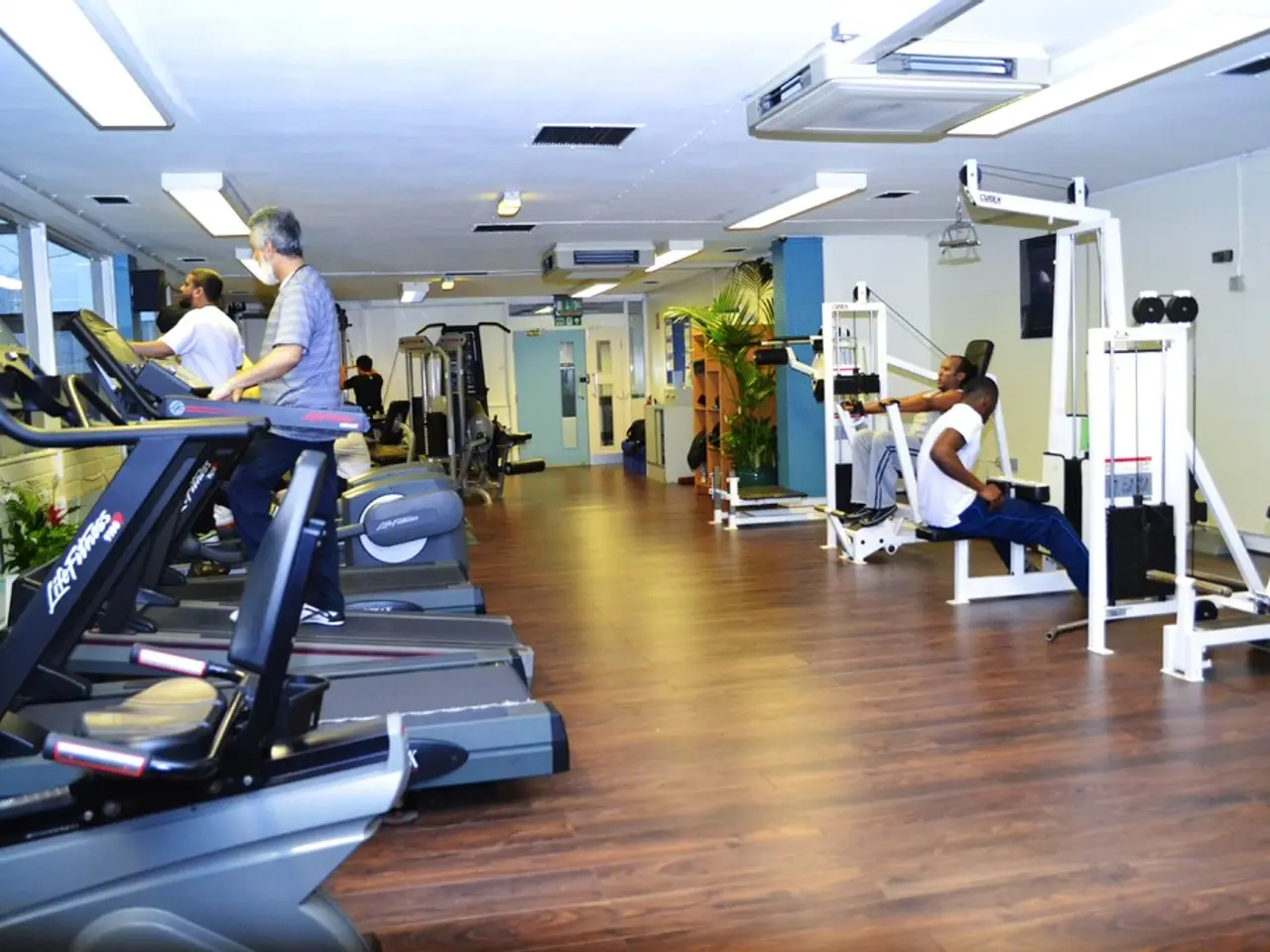Muscle Relaxation for Emotional Control: Methods and Advantages
Progressive Muscle Relaxation (PMR), a technique developed by American physician Edmund Jacobson in the 1920s, has emerged as a valuable tool for managing stress, anxiety, and promoting emotional regulation. This clinically validated method targets physical tension to foster emotional calm, improve stress management, and support mental health treatment.
PMR operates on the premise that physical and emotional stress are interconnected. By teaching awareness of muscle tension and how to release it, PMR breaks the cycle of physical tension that can exacerbate emotional stress and anxiety symptoms.
To practice PMR, find a calm and quiet place, sit or lie down in a comfortable position. Begin by taking a few deep breaths to centre your body. Start with the muscles in your feet, tensing for 5 seconds and then releasing the tension. Work your way systematically through the body, spending about 5 seconds tensing and 30 seconds relaxing each muscle group.
The benefits of PMR are manifold. It provides a calming tool that can be used anywhere, helping individuals quickly reduce tension when stressed or triggered, creating a sense of control and emotional regulation. PMR exercises can also improve sleep quality, as muscle tension often disrupts sleep, especially in anxiety or PTSD.
Moreover, PMR supports mindfulness of bodily sensations, which helps individuals regulate emotions by becoming more connected to physical states, especially valuable for trauma survivors who might feel disconnected from their bodies. By managing physical symptoms of stress, PMR creates a calmer baseline, enabling more effective participation in therapies and improving overall well-being.
PMR can be seamlessly combined with other therapeutic techniques for better results. For instance, combining it with deep breathing techniques can enhance the calming effect. Regular practice of PMR can improve overall psychological resilience and provide coping skills for managing stress.
Short PMR sessions focusing on key areas like the neck and shoulders can also be effective. Aim to practice PMR for about 15-20 minutes daily for consistency and effectiveness. Choosing specific times for PMR practice helps reinforce the habit. Guided PMR sessions can help direct beginners through the process.
In conclusion, PMR is a simple yet powerful technique that has stood the test of time, offering significant benefits for stress management, emotional regulation, and mental health treatment. Its portability and versatility make it an invaluable tool for those seeking to manage anxiety, stress, PTSD, and related conditions.
- Understanding executive function is crucial for effectively learning and applying PMR, as it involves the ability to focus, manage time, and remember instructions.
- Women, particularly those in career development and education-and-self-development, may find PMR beneficial in dealing with the stress and anxiety often associated with their pursuits, promoting personal growth and job performance.
- Incorporating PMR into a comprehensive fitness-and-exercise, nutrition, and health-and-wellness regimen can yield synergistic effects, allowing individuals to enhance their mental health, emotional regulation, and overall well-being.
- Given PMR's ability to improve focus and emotional regulation, some studies suggest that it could potentially boost cognitive performance and academic achievement, making it a potentially valuable resource within the education system.
- In addition to its immediate calming effects, the practice of PMR can have long-lasting benefits by alleviating chronic stress and preventing mental health issues, such as anxiety and depression, from developing or worsening.
- With the growing recognition of the importance of mental health, workshops and seminars on PMR and other stress management techniques are increasingly being incorporated into corporate employee training programs, offering valuable support for professionals facing the demands of career-development and work-life balance.
- By demonstrating the effectiveness of PMR through scientific research, the field of psychology has provided empirical evidence for the benefits of integrating mind-body approaches into traditional mental healthcare, paving the way for more holistic and comprehensive approaches to addressing mental health concerns.




